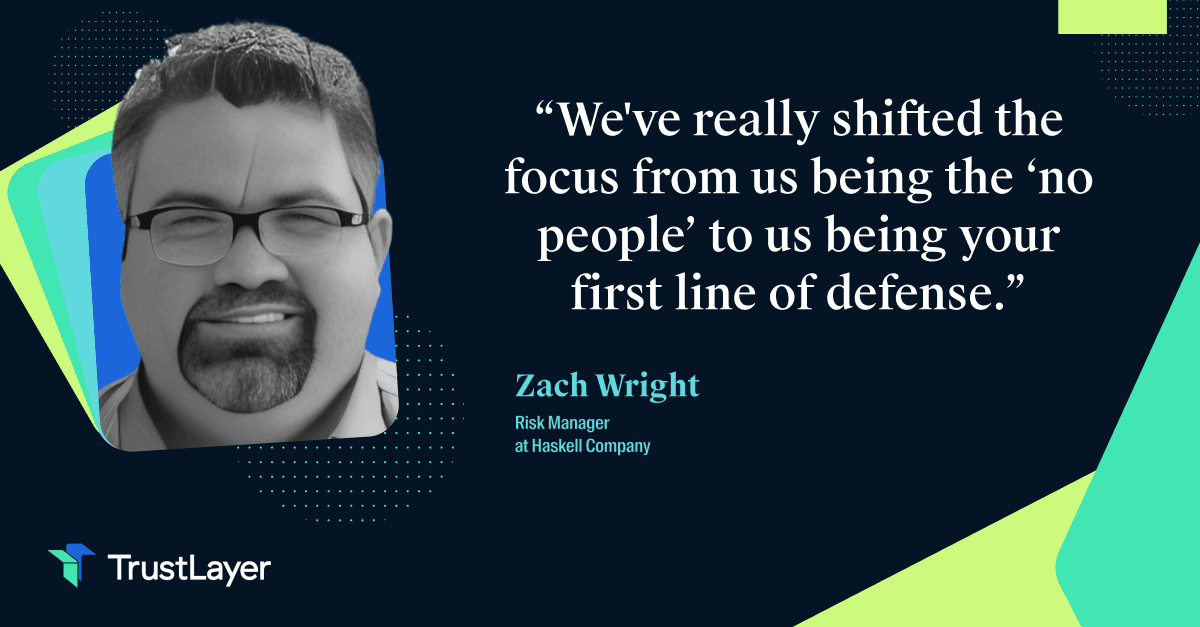Understanding COI Tracking Software
Defining COI (Certificate of Insurance) Tracking Software
COI Tracking Software is a specialized tool designed to help organizations manage and track Certificates of Insurance (COIs) effectively. A COI is a document that proves an individual or entity has the required insurance coverage. For businesses, keeping track of COIs is critical for risk management and compliance. COI tracking software automates the monitoring of these documents to ensure that all parties involved meet their insurance obligations.
With a growing emphasis on accountability and risk mitigation in today’s business environment, understanding the mechanics of COI tracking software is essential. By utilizing such software, companies can manage incoming certificates, send reminders for renewals, and maintain a clear record of all insurance documents associated with vendors, contractors, and suppliers. This not only reduces the risk of liability but also enhances operational efficiency. Additionally, many COI tracking solutions offer customizable dashboards that allow users to visualize their compliance status at a glance, making it easier to identify gaps in coverage or areas that require immediate attention.
The Importance of COI Tracking in Business
COI tracking is especially vital in industries where contract specifications require proof of insurance, such as construction, real estate, and consulting. A staggering 45% of businesses have reported facing claims arising from uninsured contractors or vendors, emphasizing the need for vigilant COI management. Failure to manage these certificates can lead to legal issues and financial exposure. Furthermore, in sectors like construction, where projects often involve multiple subcontractors, the complexity of managing various COIs can increase significantly. Implementing a robust COI tracking system can streamline this process, ensuring that all parties are adequately insured and that documentation is readily available for audits or inspections.
Moreover, tracking COIs helps businesses maintain compliance with industry regulations. Many states and municipalities require businesses to have adequate insurance coverage as a condition for issuing permits and licenses. The repercussions of non-compliance can be severe, including fines and the potential loss of business licenses. Therefore, employing effective COI tracking software is not just a best practice—it's often a necessity. In addition to compliance, having a well-organized COI management system can improve relationships with vendors and contractors, as it demonstrates a commitment to professionalism and due diligence. This proactive approach can foster trust and collaboration, ultimately leading to more successful partnerships and projects.
Key Features of COI Tracking Software
Automation Capabilities
One of the standout features of COI tracking software is its automation capabilities. Manual tracking of certificates can be a cumbersome and error-prone process, leading to missed renewals and compliance breaches. By automating this process, organizations can significantly reduce human error and free up valuable resources.
Automation features often include automatic notifications for certificate expiration and renewal, ensuring that businesses are always up-to-date with their insurance requirements. According to a study, businesses that implement automated COI tracking systems reduce their administrative workloads by up to 40%, allowing them to focus on more strategic tasks. Additionally, these systems can generate reports that provide insights into insurance coverage trends, helping organizations make informed decisions about risk management and insurance needs over time.
Compliance Management
Compliance management is another critical feature of COI tracking software. Effective compliance tracking helps businesses adhere to local, state, and federal regulations relevant to their industry. The software can provide templates and guidelines to ensure that all necessary insurance covers are in place.
Up to 60% of companies experience difficulty in keeping their insurance documentation compliant with evolving legal requirements. A robust COI tracking solution can help mitigate this challenge by providing regular updates on changes in compliance regulations and automatically adjusting the tracking parameters accordingly. Furthermore, the software often includes audit trails that document compliance efforts, making it easier for organizations to demonstrate their adherence to regulations during inspections or audits, thus fostering a culture of accountability and transparency.
Integration with Other Systems
COI tracking software is most effective when it integrates seamlessly with other business management systems. Features that allow for integration with project management, accounting, and vendor management systems can significantly enhance operational efficiency. For example, integrating COI tracking software with a project management tool allows teams to ensure that all contractors on a project have valid insurance before onboarding.
Furthermore, integrating with accounting systems facilitates easy access to financial records that may contain insurance-related data. This transparency can greatly aid in auditing processes and risk assessments, making it easier for businesses to manage their financial and operational risks effectively. Additionally, such integrations can streamline workflows by allowing data to flow freely between systems, reducing the need for duplicate data entry and minimizing the risk of inconsistencies. This interconnectedness not only boosts productivity but also enhances the overall accuracy of data used in decision-making processes, thereby empowering organizations to respond swiftly to any potential risks or compliance issues that may arise.
Evaluating the Effectiveness of COI Tracking Software
Accuracy and Reliability
When evaluating COI tracking software, the accuracy and reliability of the system are paramount. Inaccurate tracking can lead to severe consequences, including financial losses and legal repercussions. A well-designed COI tracking system should provide real-time updates and easy access to certificates, ensuring that businesses can rely on their records with confidence.
Statistics reveal that businesses utilizing accurate COI tracking mechanisms can reduce liability claims by as much as 30%. The ability to access up-to-date insurance documents ensures that businesses engage only with compliant vendors and contractors, thereby minimizing risk. Furthermore, the integration of automated alerts for expiring certificates can significantly enhance a company's proactive approach to risk management, allowing for timely renewals and avoiding lapses in coverage that could expose the organization to unforeseen liabilities.
User-Friendly Interface
The user interface plays a crucial role in the effectiveness of COI tracking software. A highly intuitive and user-friendly interface ensures that employees can easily navigate the system without extensive training. This is particularly important in scenarios where multiple users may interact with the software, such as compliance teams, project managers, and administrative staff.
Surveys show that companies with user-friendly software experience a 25% increase in employee satisfaction and productivity, as staff can work efficiently without being bogged down by complex systems. Simple navigation and clear organization of information can greatly benefit the overall user experience. Additionally, a responsive design that adapts to various devices, including tablets and smartphones, allows users to access critical information on the go, further enhancing operational efficiency and decision-making processes.
Customization Options
Every business has unique requirements when it comes to COI tracking. Hence, customization options in software become an essential feature. A flexible system allows organizations to tailor tracking categories, notification preferences, and reporting metrics to align with their specific needs.
Research indicates that companies with customizable software solutions are 50% more likely to report improved tracking and compliance abilities. This customization empowers businesses to create a tracking system that fits their workflow, ensuring that their documentation processes are as efficient as possible. Moreover, the ability to generate tailored reports can provide insights into vendor performance and compliance trends, enabling organizations to make informed decisions and optimize their vendor management strategies over time. By leveraging these insights, businesses can not only enhance compliance but also foster stronger relationships with their partners, ultimately leading to a more resilient supply chain.
Future Trends in COI Tracking Software
AI and Machine Learning in COI Tracking
The incorporation of artificial intelligence (AI) and machine learning in COI tracking software is rapidly gaining traction. These technologies enhance predictive analytics, offering businesses insights into potential risks associated with contractor compliance. For instance, AI-driven algorithms can analyze historical data to forecast when a vendor might not meet their insurance requirements, allowing proactive measures to be taken.
Experts predict that the use of AI in COI tracking may escalate by 70% over the next five years, revolutionizing how companies manage their insurance requirements. This advancement creates opportunities for timely interventions and enhances overall risk management strategies. Additionally, machine learning can continuously improve its predictions by learning from new data inputs, making the system more robust over time. As organizations increasingly rely on data-driven decision-making, the integration of AI will not only streamline compliance processes but also empower businesses to make informed strategic choices that align with their risk tolerance and operational goals.
The Role of Cloud-Based Solutions
Cloud-based COI tracking software is increasingly becoming a preferred choice for businesses. With the advantages of accessibility and collaboration, cloud solutions allow users to access their tracking systems from anywhere, facilitating remote work and real-time collaboration among teams.
Businesses utilizing cloud-based tracking systems report an impressive 60% decrease in costs associated with IT management and infrastructure. This trend not only streamlines processes but also increases the flexibility required in today’s dynamic business environment. Furthermore, cloud solutions often come with enhanced security features, such as encryption and multi-factor authentication, which help safeguard sensitive data against breaches. As regulatory requirements become more stringent, the ability to securely store and manage compliance documents in the cloud will be a significant advantage for organizations. Moreover, the scalability of cloud-based systems allows businesses to easily adapt to growth or changes in their operational needs, ensuring that their COI tracking capabilities can evolve alongside their business strategy.
Choosing the Right COI Tracking Software for Your Needs
Assessing Your Business Needs
Before selecting COI tracking software, it’s imperative to assess your business’s specific needs. Consider factors such as the volume of certificates you manage, the complexity of your compliance requirements, and the size of your team using the software. A well-defined understanding of your needs will guide you in selecting a solution that aligns with your operational goals.
Engaging stakeholders from relevant departments can provide valuable insights into necessary features and functionality. By creating a checklist of your must-haves, you can streamline the selection process significantly. Additionally, it may be beneficial to evaluate the current pain points your team faces with existing processes. Identifying bottlenecks or inefficiencies can help you prioritize features that will deliver the most immediate impact, such as automated reminders for certificate renewals or real-time compliance tracking.
Comparing Different Software Options
Once you’ve identified your needs, it’s time to compare different COI tracking software options on the market. Look for software that offers the features we’ve discussed, such as automation, compliance management, and user-friendly interfaces. Reading customer reviews, paying attention to case studies, and requesting demos can all provide deeper insights. It’s also wise to consider the scalability of the software; as your business grows, your needs may change, and the solution should be able to adapt accordingly.
Many businesses find it advantageous to create a scoring system to evaluate available options objectively. By scoring software based on predetermined criteria, you can ensure a comprehensive comparison that leads to informed decision-making. Furthermore, consider the level of customer support offered by the software provider. Responsive support can be crucial, especially during the initial implementation phase or when troubleshooting issues. A vendor that provides extensive training resources and ongoing assistance can make a significant difference in your team’s ability to leverage the software effectively.
Making the Final Decision
After thorough research and analysis, it's time to make the final decision. Selecting COI tracking software is a strategic move that can significantly affect your compliance and risk management efforts. If possible, collaborate with your IT team to ensure that the chosen software integrates seamlessly with existing systems and meets your organization’s technical requirements. Additionally, consider the software’s reporting capabilities. Robust reporting features can provide insights into compliance trends and help you make data-driven decisions moving forward.
Moreover, it’s essential to evaluate the pricing structure of the software. Some solutions may have hidden costs associated with implementation, training, or ongoing maintenance, so it’s important to have a clear understanding of the total cost of ownership. Engaging in discussions with the vendor about potential customization options can also be beneficial, as tailored solutions may better meet your specific operational needs. The right investment in COI tracking software can lead to enhanced efficiency, reduced risk, and ultimately, a more secure operational framework for your organization.
Ready to elevate your risk management and compliance efforts with state-of-the-art COI tracking technology? TrustLayer is your go-to solution, designed to simplify and automate the verification of compliance documents, freeing you from the administrative burden of manual processes. As the leading solution in the industry, TrustLayer is trusted by hundreds of thousands of companies for its innovative approach to vendor document management and proof of insurance. Embrace the future of risk management with a platform that's built for the modern risk manager, by people who deeply understand and care about your needs. Don't let outdated methods hold you back. Set up a time to talk with our team today and discover how TrustLayer can transform your COI tracking experience, saving you time and money with every step.








